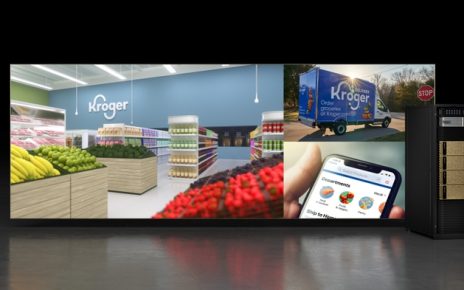SUNNYVALE — Google Cloud has released new research that explores how retail decision makers in the United States perceive the value of generative AI, and how they anticipate deploying the technology in 2024. A study commissioned by Google Cloud of 274 U.S. C-suite executives, information technology leads, and business development managers, found that 81% of retail decision makers feel urgency to adopt generative AI technologies, with 72% ready to deploy generative AI in the coming year.
In 2023, generative AI emerged as one of the fastest-growing technology trends to date, with retailers moving quickly to pilot and explore generative AI tools, Now, the majority (75%) of surveyed retail decision makers believe generative AI can be practically deployed in their business and 78% believe generative AI will impact their industry in the next 12 months. Nearly all (95%) of these decision makers said that generative AI will have an impact on customer experience.
“Generative AI has come so far in one year, shifting from a barely known concept to an urgently needed answer for numerous business challenges,” said Amy Eschliman, managing director, Retail Industry Solutions at Google Cloud. “2023 was a period of experimentation for retailers and many invested in learning where generative AI could have the biggest impact. In 2024, we expect to see retail decision makers put this technology into production to improve shopping experiences, increase productivity, and fuel growth.”
Generative AI is expected to drive impact across five key areas in 2024
Retailers see potential for measurable change across their business, with 75% of retail decision makers saying they believe generative AI is a key way retailers can reinvent themselves. After initiating generative AI deployments in 2023, 72% of retail executives felt satisfied with their performance and outcomes, while about 28% didn’t.
Retail decision makers have also signaled a strong sense and understanding of where this new technology can be most impactful in their industry. Research respondents had high confidence that generative AI is poised to fundamentally change customer experience, and almost half of retailers have started their generative AI journey for customer service automation, with a portion currently piloting (25%) and others already deploying (22%).
Notably, retail decision makers have coalesced around five use cases where they’d like to deploy generative AI in 2024:
- Customer service automation: 59% of respondents want to use generative AI to streamline customer service with less human intervention by providing conversation summaries, automating tasks, and ultimately driving conversion. This could include inquiry resolutions, appointment scheduling, and completing transactions.
- Marketing support and product description generation: 49% of respondents want to use generative AI to accelerate product categorization and generate great customer-centric marketing copy.
- Creative assistance: 44% of respondents want to use generative AI to empower retail creative teams to curate bespoke images and creative content for campaigns and editorial placements and also enable one-to-one personalization.
- Conversational commerce: 40% of retail decision-makers want to use generative AI to address shopper inquiries with interactive responses beyond just product recommendations.
- Store associate knowledge and support: 38% of respondents want to use generative AI to automatically develop internal knowledge articles from existing data sources, such as product documentation, customer support tickets, and employee training materials.
Retailers will increasingly hire technical positions to support innovation
To continue supporting technology innovation in the coming year, more than half of retail decision makers anticipate an increase in technical positions across several job functions. The leading positions include data scientists (77%), machine learning engineers (69%), prompt engineers (57%), and AI-related product managers and developers (78%). Specifically, retail decision makers expect hiring for data scientists across retail is anticipated to increase by 10%.



